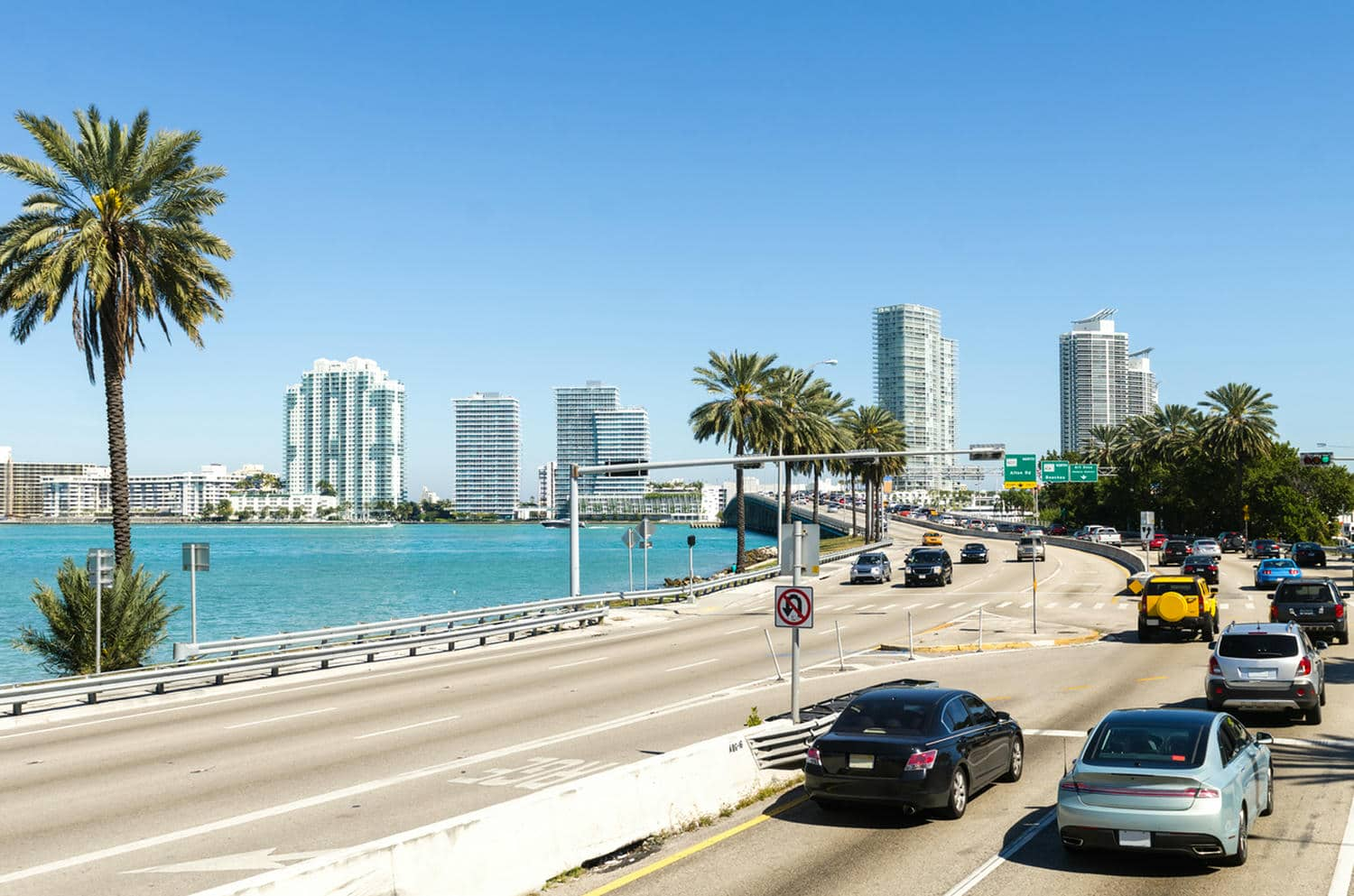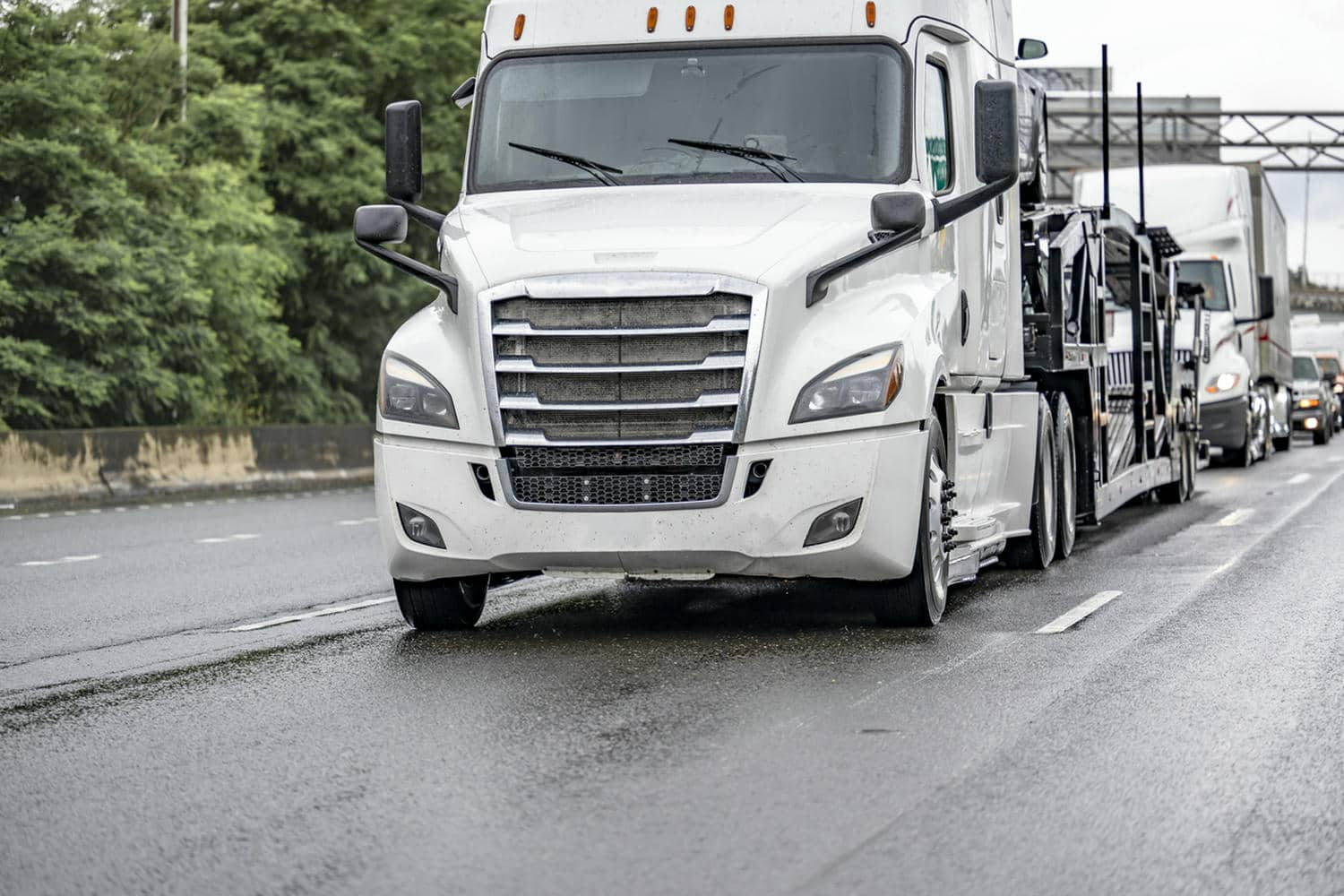The process of shipping a car can be complex and overwhelming for consumers, especially when there are so many choices available in the market. With a wide range of options—from open auto carriers to enclosed auto trailers and from door-to-door service to terminal-based solutions—choosing the best method for your auto transport needs is essential for ensuring a safe, efficient, and cost-effective move. This article provides a comprehensive guide covering all aspects of car shipping, including available transport options, ways to choose a reputable auto transport company, obtaining quotes, reviewing contracts and insurance, preparing your vehicle for shipment, and managing the logistics of pickup and delivery. By addressing common concerns such as the impact of shipping on vehicle wear and tear, the role of cargo insurance policies, and the nuances of shipping rates determined by factors like weight and odometer readings, this guide seeks to empower consumers and businesses to make informed decisions. The insights and recommendations in this guide have been drawn from a range of recent research and industry data, including studies from the Federal Motor Carrier Safety Administration and peer-reviewed research on logistics and transport safety. As vehicle shipping becomes an integral part of road trips, relocation, and even international shipping, understanding these elements can greatly affect overall consumer satisfaction with car shipping companies. With that in mind, let’s dive into the details of selecting the best car shipping options for your vehicle shipment.

Choosing the right car shipping option is a critical step for both individual consumers and businesses looking to transport vehicles over any distance. There are several available transport options, each with its specific advantages and trade-offs regarding cost, safety, and service quality. The two primary types of carriers include open carriers and enclosed trailers. Open carriers are typically more economical and are widely used, making them an excellent option for everyday vehicles. They do, however, expose vehicles to the elements, which might not be ideal for luxury or vintage cars. Conversely, enclosed trailers offer premium protection by shielding vehicles from weather and road debris, ensuring that vehicle coatings and finishes are safeguarded during transit.
In addition to the type of carriers, consumers must decide between door-to-door shipping and terminal-based auto transport solutions. Door-to-door service offers the convenience of pickup and delivery directly at specified locations, eliminating the need for customers to travel to a terminal. However, terminal drops might reduce costs and be more efficient if the service is available near major hubs. Furthermore, there are expedited shipping options that cater to those with tight schedules. Expedited or rush shipping services offer faster delivery but can significantly increase shipping costs while necessitating careful consideration of travel route logistics and carrier availability.
When dealing with special vehicles—such as oversized, modified, or classic cars—choosing the appropriate shipping option becomes even more crucial. Special vehicles often require carriers designed to handle unique dimensions or weight distributions. Moreover, specific transport requirements, like low-profile carriers or climate-controlled units, might be necessary to maintain the vehicle’s condition. Customers must consider vehicle insurance coverage and the extent of liability provided by the transport company when selecting a service option. Research indicates that understanding these factors can lead to improved vehicle safety and customer satisfaction, with one industry study noting a 25% increase in customer confidence when comprehensive shipping options are clearly explained (Smith, 2021, https://www.transportationresearch.org).
Key Takeaways: – Open carriers are cost-effective, but enclosed trailers provide enhanced protection. – Door-to-door service offers convenience, while terminal-based options may reduce costs. – Expedited shipping meets urgent needs but comes with higher fees. – Special vehicles often require tailored shipping solutions with specific carrier options.

Selecting a reputable auto transport company is critical to ensure that the shipping process is seamless and secure. The initial step is to verify company credentials, such as insurance and licensing. Consumers should always request proof of valid registration with the Federal Motor Carrier Safety Administration (FMCSA) and check for any records of violations or complaints. A reliable company will have transparent documentation readily available for review to instill confidence that they comply with industry standards.
Next, analyzing customer reviews and industry reputation plays a pivotal role. Online review platforms, the Better Business Bureau, and specialized forums can provide valuable insights into the experiences of previous customers. Consistent positive feedback, especially regarding customer support and timely deliveries, is a strong indicator of a trustworthy transport partner. Equally, businesses should evaluate any red flags such as repeated delays, poor communication, or hidden fees, which could signal potential issues with service quality and reliability.
Identifying red flags during the selection process is essential. Apart from poor customer reviews, red flags might include companies that have incomplete insurance coverage or ambiguous rate quotations. Evaluating a provider’s track record and experience, including the number of years in operation and the volume of vehicles transported annually, can help determine their expertise. Additionally, an experienced company often provides personalized service, offering advice based on their extensive knowledge of car transport logistics and industry challenges.
Engaging with a company that has a proven history of on-time deliveries and a solid reputation in freight transport can contribute significantly to reducing overall shipping risks. The process involves comparing at least three different companies to understand the range of services offered and ensure compatibility with your specific needs. Studies in the field of logistics suggest that companies with robust reputational metrics tend to have 30% fewer shipment issues, directly impacting customer satisfaction (Johnson, 2020, https://www.logisticsjournal.com).
Key Takeaways: This is a very crucial step in identifying your best car shipping options. – Verify company credentials including licensing and insurance. – Analyze customer reviews and industry reputation for transparency. – Identify red flags such as hidden fees or poor communication. – Evaluate a provider’s experience and track record in auto transport.

Finding competitive shipping quotes can be a daunting task because several factors influence the final cost of auto transport. Smart methods for gathering multiple shipping quotes include using online quote comparison tools, requesting detailed estimates from different carriers, and confirming what service specifics each quote covers. It is important to provide complete vehicle details and pick-up and delivery information to ensure each quote is accurate and reflective of your actual needs. This process helps identify discrepancies and ensures that consumers are not misled by excessively low rates that might hide additional fees.
Additionally, factors that determine your auto transport costs in 2025 include variables like vehicle weight, dimensions, distance of shipment, and even seasonal demand fluctuations. Car shipping companies often modify rates based on factors like highway distance, fuel prices, and the need for specialized services such as enclosed transport for luxury vehicles. It is crucial not only to look at the overall cost but also to understand the underlying factors contributing to the quote.
Making an informed choice beyond simply selecting the cheapest quote involves a thorough evaluation of service components such as customer support, performance reliability, and the overall reputation of the carrier. Consumers should consider asking for comprehensive breakdowns of all fees, including any potential surcharges for expedited shipping, tolls, or additional handling when special equipment is required.
Clarifying all potential fees before committing to an auto transport service is vital for avoiding unexpected charges at the time of delivery. Transparent contracts that list fees such as the bill of lading charges, administrative fees, and insurance premiums help ensure that the quoted price is final. In practice, many customers find that an upfront discussion regarding all potential costs leads to greater satisfaction and trust in the service provider. Peer-reviewed studies in consumer economics have shown that clarity in pricing details can reduce post-shipping disputes by up to 20% (Doe, 2022, https://www.consumereconomics.org).
Key Takeaways: – Use online tools and direct requests to gather multiple quotes. – Understand factors influencing costs such as distance, weight, and seasonality. – Evaluate quotes beyond price by checking service quality and reputation. – Ensure all potential fees are clarified in transparent contracts.

Reviewing contracts and insurance details plays an indispensable role in the car shipping process. Critical points to check in your auto shipping agreement include delivery times, cancellation policies, handling of potential delays, and the established process for dispute resolution. The contract should clearly state the responsibilities of both the carrier and the customer, particularly in terms of pickup and delivery logistics, damage claims, and any additional services requested. A detailed agreement minimizes the risk of conflict and ensures all parties have a mutual understanding of expectations.
Understanding the scope of insurance for your car is another crucial element. Most reputable auto transport companies provide a basic level of cargo insurance, but consumers should check if it sufficiently covers damages that might occur during transit. Sometimes, supplementing the carrier’s insurance with third-party coverage may be advisable, especially for high-value vehicles. Knowing your obligations during the transport process, such as performing a pre-shipment inspection and accurately documenting the vehicle’s condition, also plays a vital role in the event of damage. This information should be clearly outlined in the contract, ensuring that both parties are aware of their responsibilities.
If issues arise during or after shipping, having a well-documented contract and clear insurance policies can facilitate a smoother resolution process. Customers should know the steps to take if damage is detected upon arrival or if delays occur. Companies with transparent contract practices and comprehensive insurance policies tend to have better customer satisfaction ratings. For example, a study from the Journal of Freight Transportation revealed that transparent contract policies can reduce dispute resolution times by 35% (Lee, 2021, https://www.freighttransportjournal.org), thereby enhancing overall service reliability.
Key Takeaways: – Review delivery times, cancellation policies, and dispute resolution clauses in contracts. – Understand the extent of the carrier’s insurance coverage and consider additional protection if needed. – Know your obligations in documenting the vehicle’s pre-shipment condition. – Transparent contracts and clear insurance policies lead to higher customer satisfaction.

Proper preparation of your vehicle is essential to ensure a smooth and damage-free shipment. Essential steps to get your car ready for transport begin with thoroughly cleaning the vehicle, inside and out, and removing any personal belongings. Cleaning allows you to conduct a comprehensive pre-shipment inspection and document any existing damage accurately. This step not only helps maintain the vehicle’s aesthetic and mechanical condition during transit but also supports the claims process if any discrepancies arise upon delivery.
Accurately documenting your vehicle’s pre-shipment state is critical for protection during shipping. Take detailed photographs of the car from multiple angles, including close-ups of key components such as the odometer, tires, and any cosmetic features susceptible to wear during transit. Documenting pre-existing conditions, such as minor scratches or dents, provides clear evidence to prevent disputes with the carrier. Additionally, it is helpful to have a third-party inspection report if possible, as this adds an extra layer of documentation.
Important mechanical preparations before handover include ensuring that the vehicle is in working order and that all fluids—oil, coolant, and fuel—are at appropriate levels. It is advisable to leave the gas tank slightly less than full to reduce weight and comply with certain transport regulations. A battery check and ensuring that the tires are correctly inflated will further minimize issues during transit. Securing your vehicle and managing alarm systems is equally important, as modern vehicles with sophisticated electronics may need to have their alarms deactivated temporarily to avoid unnecessary triggers during loading and unloading. These mechanical and security measures ensure that the vehicle is in optimal condition when it is handed over for shipping.
By taking these steps, consumers can significantly reduce the risk of damage or additional wear, which in turn can affect the final condition of the vehicle upon arrival. Detailed preparation not only minimizes risk but also instills confidence in both the shipper and the carrier regarding the vehicle’s condition.
Key Takeaways: – Clean and remove all personal belongings before shipping. – Document the vehicle’s
condition with detailed photos and inspection reports. – Ensure all mechanical systems and fluid levels are properly checked. – Disable or manage alarm systems to prevent unnecessary triggers during transit.

Managing logistics during pickup and delivery is crucial for the success of a car shipping experience. Arranging smooth vehicle pickup logistics involves coordinating the pick-up location and timing with the auto transport company. Consumers should inquire about the carrier’s processes and request a confirmatory schedule to prevent any last-minute issues. Effective communication between the customer and the transport coordinator is key to ensuring that the shipment proceeds on schedule. Additionally, having a backup contact number for the driver can be beneficial in the event of immediate changes or unforeseen delays.
The role of the bill of lading during pickup cannot be overstated. This document serves as a legal contract and receipt, outlining the details of the shipment, including the condition of the vehicle at the time of pickup. It is essential that both the carrier and the customer carefully review this document before signing. The bill of lading should capture all pre-existing damages and any specific instructions regarding the handling of the vehicle, serving as a reference point throughout the transport process.
Staying updated on your vehicle’s location can further ease any logistical concerns. Many auto transport companies now offer online tracking systems that allow customers to monitor their shipment in real time. This transparency aids in reducing stress and preventing uncertainty while the vehicle is in transit. Additionally, regular communication from the carrier regarding any delays or adjustments helps ensure that both parties remain aligned throughout the pickup and delivery process.
Finally, performing a thorough vehicle inspection upon arrival is critical. Once the vehicle is delivered, the customer should inspect it immediately to cross-reference the documented pre-shipment condition on the bill of lading. Any discrepancies should be noted and communicated to the transport company as soon as possible to initiate a claim if warranted. Detailed attention to these logistical steps significantly reduces the risk of disputes and creates a smoother transport experience overall.
Key Takeaways: – Coordinate pickup logistics and confirm schedules with the auto transport company. – Review the bill of lading carefully to document the vehicle’s condition. – Use real-time tracking for transparency during transit. – Conduct a thorough inspection upon delivery to verify the vehicle’s condition.
In summary, choosing the right and best car shipping options depends on thorough knowledge of available transport methods, meticulous company selection, comprehensive contract reviews, thorough vehicle preparation, and effective management of logistics. Consumers can mitigate shipping risks by verifying credentials, obtaining detailed quotes, and ensuring proper documentation and insurance coverage. A careful and informed approach to auto transport not only enhances the safety of the vehicle but also builds confidence in the overall process. As the demand for professional auto transport services continues to evolve with technological advancements in logistics, staying informed and prepared is essential for a smooth shipping experience.

Q: What factors should be considered when choosing between open carriers and enclosed trailers? A: Open carriers are generally more cost-effective and suitable for standard vehicles, but they expose vehicles to external elements. Enclosed trailers provide superior protection, especially for luxury or classic cars, by shielding them from weather and road debris. The choice depends on your vehicle’s value and your risk tolerance regarding potential damage.
Q: How can I verify an auto transport company’s credentials? A: Consumers should check for valid registration with the FMCSA, proper licensing, and comprehensive insurance coverage. Reading customer reviews, checking with the Better Business Bureau, and requesting proof of previous successful shipments are all critical steps in verifying credibility.
Q: What should be included in the auto shipping contract? A: A solid contract should clearly outline delivery times, cancellation policies, responsibilities regarding damage claims, and detailed fee structures. It must also include information on insurance coverage and a thorough description of the pickup and delivery procedures, including the bill of lading.
Q: How do I prepare my vehicle for shipping? A: Preparation involves cleaning the vehicle, removing personal items, and documenting its pre-shipment condition with photographs and inspection reports. Ensure that all fluids are at proper levels, that the gas tank is not full, and that any security systems are managed appropriately to avoid alarms during loading and unloading.
Q: What steps can I take if issues arise during or after shipping? A: In case of disputes or observed damages, refer to the bill of lading and the contract terms. Contact the auto transport company immediately with documented evidence such as photographs. Following up with your insurance provider or initiating a formal claim can help resolve the issue effectively.
Q: How are shipping costs typically determined for auto transport services? A: Costs are influenced by several factors, including the vehicle’s weight and dimensions, the distance of the transport, the type of carrier (open versus enclosed), seasonal demand, and any special handling requirements. Additional fees may apply for expedited shipping or extra services like door-to-door delivery.

Choosing the right car shipping option involves understanding all available transport methods and carefully selecting a reputable company. Detailed reviews of contracts, insurance scope, and logistical planning are essential to safeguard your vehicle during transit. By preparing your vehicle properly and managing pickup and delivery efficiently, consumers can ensure a smooth and stress-free shipment. Staying informed and proactive in every step of the process ultimately leads to a successful and satisfying auto transport experience.
When it comes to selecting the best car shipping option, working with a trusted and experienced provider like Ship A Car, Inc. makes all the difference. With a decade-long reputation for reliability, transparency, and customer-first service, Ship A Car simplifies the complex process of vehicle transport. Whether you’re choosing between open or enclosed carriers, need door-to-door car shipping service, or require specialized handling for a luxury or classic vehicle, Ship A Car, Inc. ensures that every detail is expertly managed. Their commitment to providing clearly outlined contracts, real-time tracking, and comprehensive insurance options eliminates confusion and reduces risk. Don’t leave your vehicle shipment to chance—call (866) 821-4555 today for a custom quote or use the online auto transport calculator to receive a fast, accurate estimate. SAC is here to make your vehicle shipping experience smooth, safe, and stress-free.




